Amritsar: Seventeen-year-old Mohammad Ayan sits curled up in the back of a white SUV, arms tightly crossed over his chest as if trying to hold himself together. His eyes – red, swollen, and glazed with tears – stare blankly at the Wagah-Attari border gate, which now signifies an abrupt end to a journey he never wanted to take alone.
Ayan, who was paralysed in an accident back home in Pakistan two years ago, arrived in India on 17 March. With a sliver of hope finally within reach, he bravely shuttled between hospital corridors – Max to Apollo – as Delhi became his temporary home. But today, those memories are but a blur. As India cancelled Pakistani visas in the aftermath of the Pahalgam terror attack, Ayan and his three siblings are being forced to return home without their mother, an Indian national married to a Pakistani.
“Fifteen more days were left on our visa. In this situation, it is my mother whom I need the most, even more than the doctors,” said Ayan, struggling to breathe as he wiped his tears hurriedly. His wheelchair is stuck on the top of the car while a urine bag is tucked into his body. “I don’t want to go back without my mother. I came here for my treatment,” he said repeatedly, with his siblings shifting restlessly next to him.

The India-Pakistan border near Amritsar is now filled with long, slow-moving, serpentine lines of hybrid families weighed down by anguish. The deadline to cross over is 27 April; the border will be sealed shut after that. People queue up early in the morning at Attari with their passports, lugging bags full of regrets.
Fifteen more days were left on our visa. In this situation, it is my mother whom I need the most, even more than the doctors – Mohammad Ayan, 17

Wagah, the once-hopeful border that tied families and friends across India and Pakistan, has now turned into a hurried, confused scene of abrupt goodbyes and interrupted life plans. An Indian bride about to get married without the presence of her parents isn’t sure where she belongs anymore; an inconsolable Indian origin woman married into Pakistan had to cut short her visit to her mayka (parents’ home) within a few days of landing; one mother has to leave for Pakistan without her son.
I don’t know what happened, but I just know that I love India — this is my country. Everything we have is here – Sindhu Karwer, an Indian Hindu woman married in Pakistan
For many families at Wagah, the distance between India and Pakistan today feels insurmountable and wider than ever. There’s a giant blackhole of uncertainty that now envelopes them.
The Indian government should have given us at least a week’s time; that’s my only grouse with them. My fault is that I have a green passport. Whatever happened in Kashmir is very bad and the culprits should be punished, but how am I, India’s daughter, at fault? – Rabika, an India-born Pakistan national
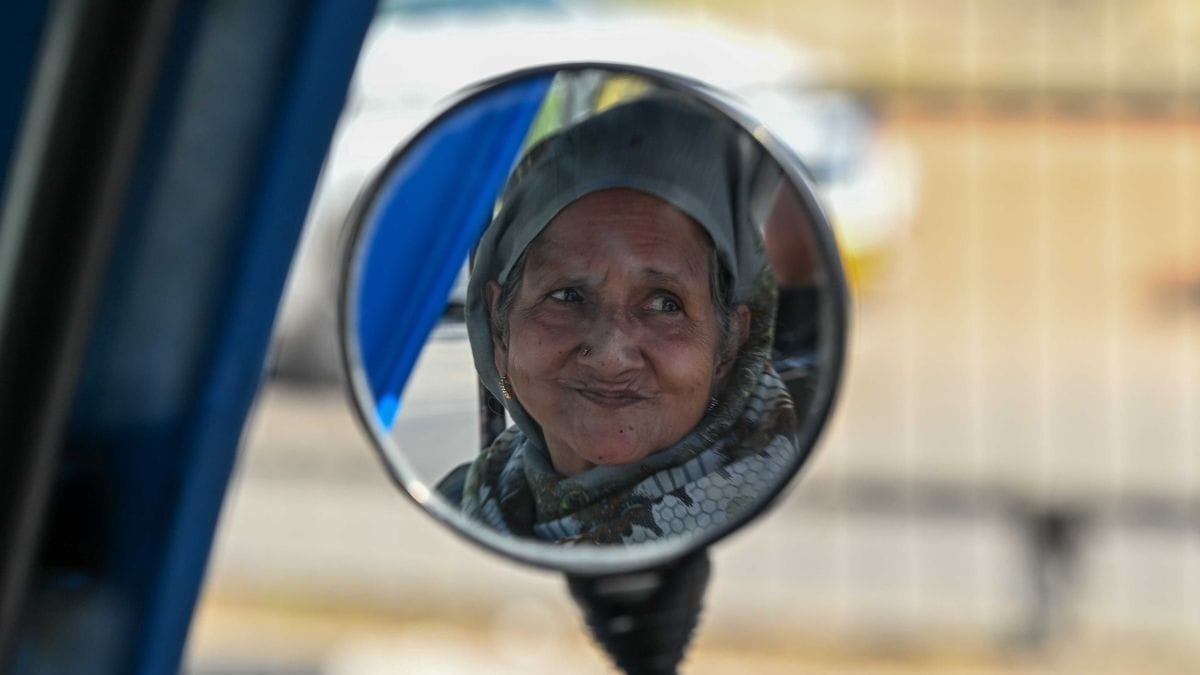
“We waited years, prayed for visas, and dreamt of meeting our family. When we finally crossed over, it felt like life had given us a second chance. But now, without warning, we are being pushed back — as if our memories, our hopes, our tears mean nothing. I don’t know when or if we will ever meet again,” said 52-year-old Salim-un-nisa, who is returning to Pakistan after spending nine days with her sisters in India.
“I couldn’t eat my favourite food, didn’t meet my other relatives. I got the chance to come here after 10 years. I don’t think I will be able to come again in this lifetime,” she said.
Meanwhile, 55-year-old Sindhu Karwer, an Indian Hindu woman married in Pakistan, sits hunched over a red plastic chair at the Attari-Wagah border, her yellow dupatta pulled low over her tear-streaked face.
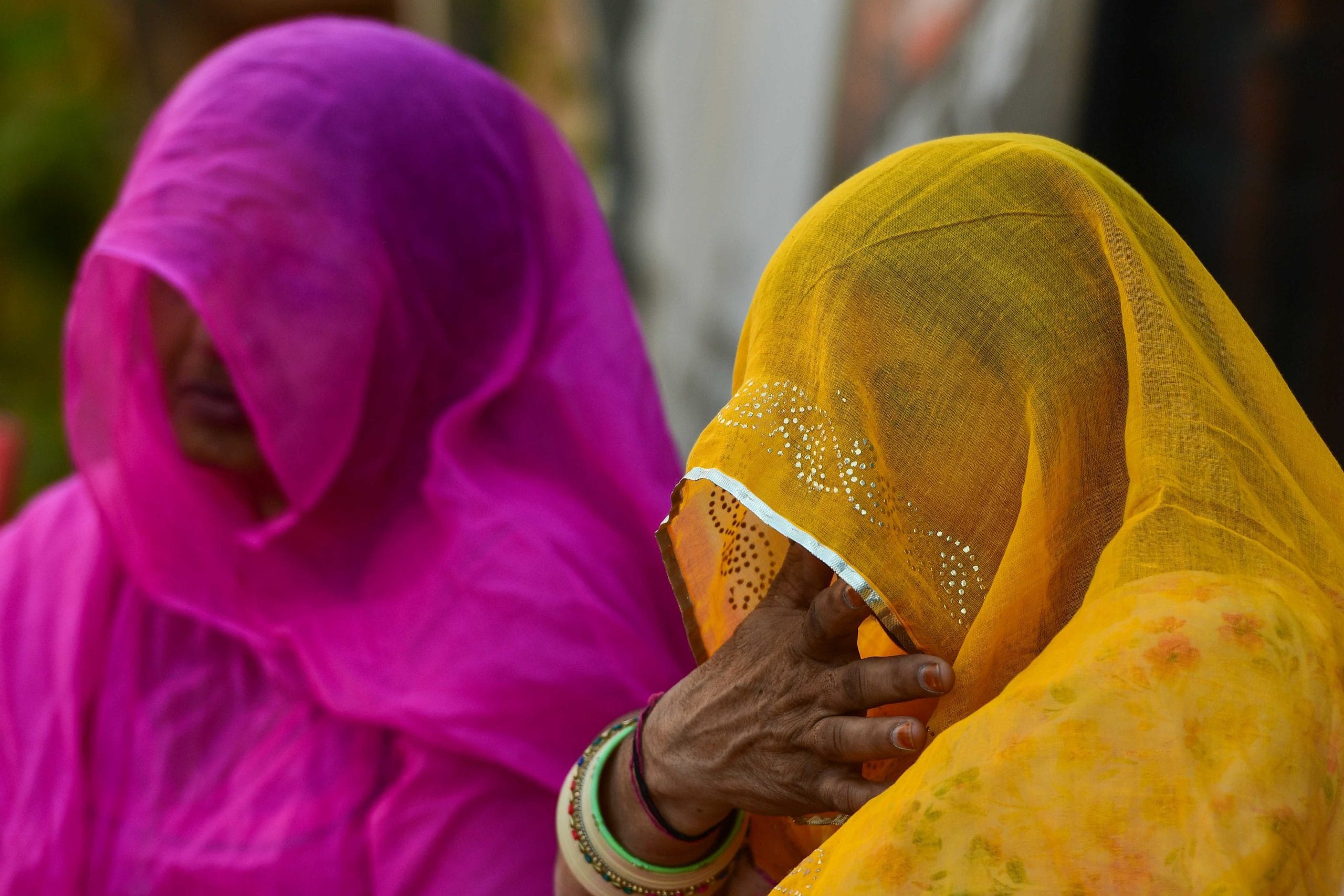
Beside her, her daughter, sister-in-law, and husband clutch each other in silence, while her son sits a few chairs away. Sindhu’s hands, heavy with white bangles, tremble and clink as she wipes her eyes. It was supposed to be a celebration — her daughter was going to get married into a Jodhpur-based Hindu family on 29 April. Now, they are being forced to leave India, their dreams crumbling under sudden visa cancellations.
“We just needed two more days,” she whispered again and again, her voice cracking. “Everything was ready… everything was ready… but now our daughter will get married without us.”
The operatic human drama of separation playing out at Wagah shows how some people’s paperwork is loosely maintained and unscrutinised, and how blended families have to wait for years for Indian citizenship to come through while being forced to navigate in limbo land. Others live on long-term visas on both sides and have built family lives.
I couldn’t eat my favourite food, didn’t meet my other relatives. I got the chance to come here after 10 years. I don’t think I will be able to come again in this lifetime – Salim-un-Nisa, India-born Pakistan national
Sindhu and her elder daughter, who is getting married, both hold Indian passports. She was born in India, and had her daughter here too. But Sindhu is married to Takhat Singh, a Pakistani national, and their two other children are also Pakistani citizens by birth. The family had come to India on 26 December to prepare for the wedding. They did the shopping, bought the gold, booked the halwai, and invited all their relatives in India. It was supposed to be one of the biggest days of their lives — until the terror attack in Pahalgam changed everything.

Sindhu Karwer doesn’t know what exactly happened in Kashmir. She is uneducated and doesn’t understand the politics between the two countries. She only remembers the “news on TV asking Pakistani nationals to leave,” after which she began to pack her bags.
“I don’t know what happened, but I just know that I love India — this is my country. Everything we have is here,” she said, pulling her dupatta over her face to hide her tears.
Sindhu’s family travelled over 1,000 kilometres from Jodhpur to reach the Attari border on time — only to be separated in the end. Sindhu wanted to – and could legally continue to – stay back in India. But she must return to Pakistan to be with her husband and younger children. Only her elder daughter, an Indian national by birth, will stay back in her soon-to-be marital home of Jodhpur.
The Pahalgam attack has strained India-Pakistan ties, with the Indian government announcing a series of tough measures — including suspension of the Indus Waters Treaty, halting cross-border bus and train services, tightening trade restrictions, summoning the Pakistani envoy, and cancelling visas issued to Pakistani nationals. Hundreds of Pakistani citizens who had come to India — for medical treatment, family visits, or religious pilgrimages — are now scrambling to return. Even Pakistani Hindus who had been living in India for months or years on long-term visas are gripped by fear, uncertain about their future.

Women who had waited years to secure a visa, after long bureaucratic delays, found themselves packing their bags just days after arriving. In just three days, nearly 537 Pakistani nationals have crossed back, while over 850 Indian citizens who were in Pakistan have also returned, said police protocol officer Arun Mahal. It is a cruel separation from their family, dreams, and hopes.
“People had come to India on different visas — for religion, marriages, or to meet families. It was a very difficult decision for these families, but the terror attack was also terrible, so we are bound to follow the government’s decision,” said Hameer Singh Sodha, president of the Seemant Lok Sangathan, an organisation that advocates for the rights of Pakistani Hindus in India.

Reflecting on the larger struggle faced by cross-border families, he added, “After Pulwama, the Thar Express train service was shut down. It used to be cheaper and easier to come to India. The visa process became extremely difficult. We had to go through a lot of people. It had slowly started getting better, but now it feels like we are back to the tough days. It will be very hard for those who are still in Pakistan and hope to come here.”
As families packed their memories into suitcases and prepared for painful goodbyes, the heartbreak was evident at every corner of the border.
“Borders have always divided nations. But this week, they are dividing families, shattering weddings, and scattering memories across two countries that once seemed closer than they now feel,” said Takhat Singh, Sindhu’s husband.
Also read:
Families separate
People from Delhi, Barmer, Prayagraj, and Jodhpur have been gathering at the Attari-Wagah border since early Sunday morning, preparing to cross over. Three-wheeler autos, small hatchbacks to SUVs line up at the gates, crammed with whatever belongings people could carry – from heavy trolleys to simple plastic bags. Rich or poor, everyone anxiously waits for their turn, clutching their documents and hoping for clearance. While vehicles arrived as early as 6 am, it wasn’t until after 10 am that the barricades finally creaked open, allowing slow, heavy movement across the border.
Had my health been better, I would have taught those terrorists who took innocent lives a lesson. They are not humans – Mohammad Bi, 85
“It’s not our decision. We are just following orders,” said a Border Security Force (BSF) officer, flipping through passports and documents. “It feels sad to see people crying, leaving their families behind… but it is what it is. The situation is helpless,” he added while checking the papers of an 85-year-old woman, Mohammad Bi, who had come to India to spend time with her son.
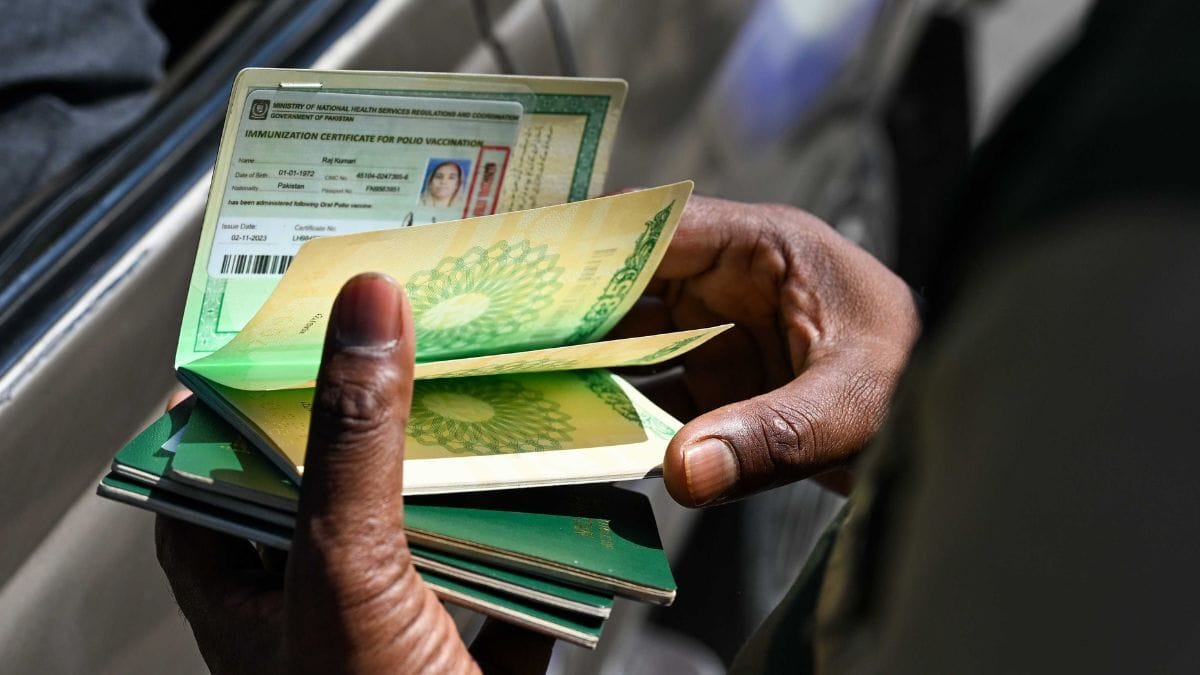
Mohammad Bi could spend just two months with her son in Chandni Chowk. She had one more month left, but had to rush to the border with her son and neighbour. Her other son, who lives in Pakistan, is furious about the situation.
“Had my health been better, I would have taught those terrorists who took innocent lives a lesson. They are not humans – they are living demons,” said Mohammad Bi.

In Attari today, mothers are leaving without their children, and children are crossing borders without their mothers.
Also read:
No sympathy for terrorists
Forty-eight-year-old Rabika’s curses travel across the packed roads leading up to the Wagah border, cutting through the noise of traffic lines. She is angry at the Indian government and the terrorists who mercilessly destroyed what was supposed to be a once-in-a-lifetime family reunion. Around her, other Pakistani nationals also voice their anger openly, blaming terrorists for ruining the lives of ordinary people, calling them “enemies of humanity” and “the real reason families are being broken apart.”
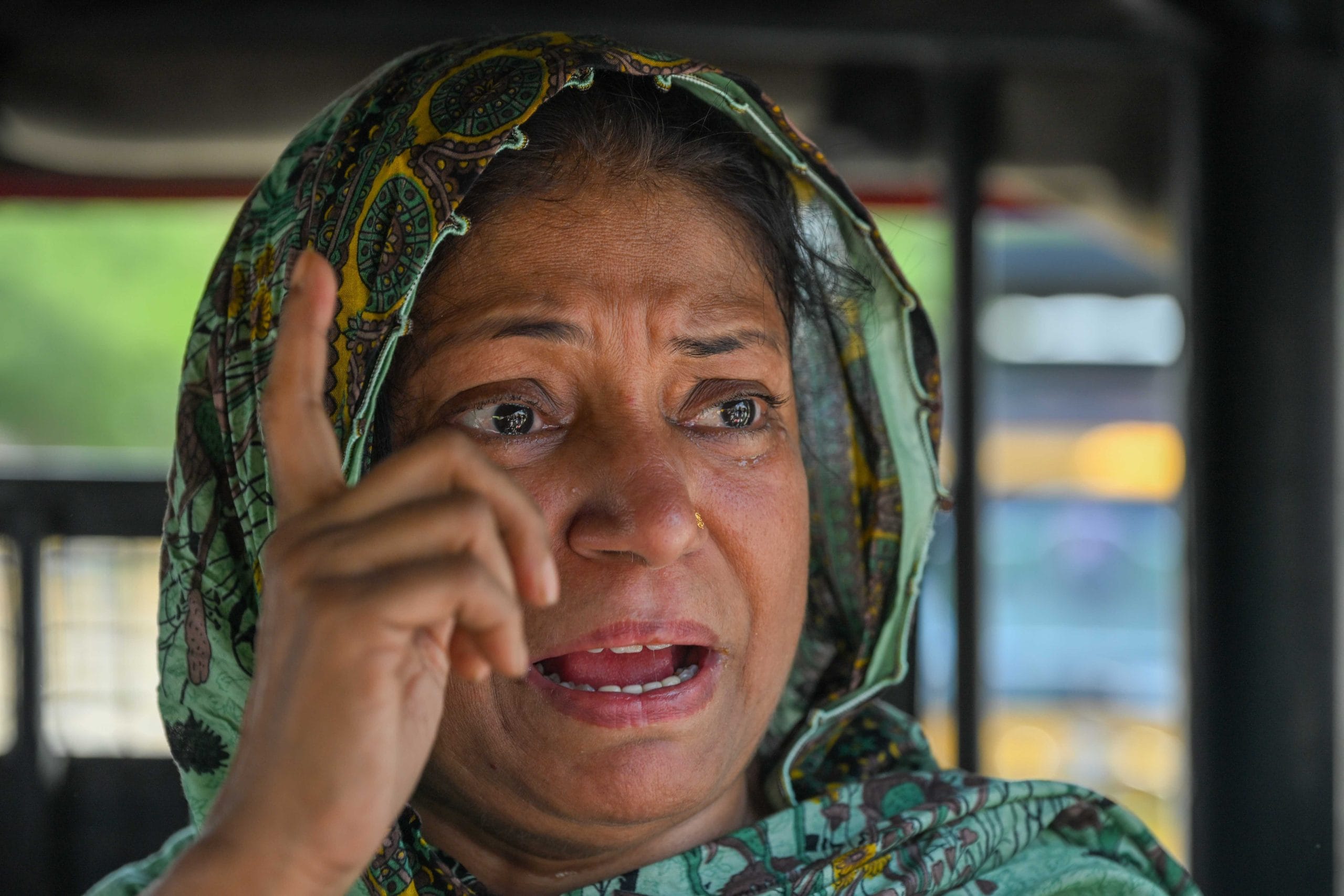
“The Indian government should have given us at least a week’s time; that’s my only grouse with them. My fault is that I have a green passport. Whatever happened in Kashmir is very bad and the culprits should be punished, but how am I, India’s daughter, at fault?” said Rabika, an India-born Pakistan national, while sitting next to two big bags in an auto rickshaw.
“If they had any shame, they would see what they have done to mothers, to children,” shouted Takhat Singh while struggling to lift his trolley bag. “They don’t fight wars — they destroy families.”
It feels sad to see people crying, leaving their families behind… but it is what it is. The situation is helpless – a BSF officer at Attari-Wagah border
Children, too, carry their share of silent sorrow. Ayan, slumped in the backseat of his car, keeps glancing at the gate, his worn grey kurta clutching his body like second skin. “I don’t even want to see it open,” he said, his voice shaking. “I just want my mother to hold my hand when I cross.”
It is not the thud of closing gates or the stamping of passports that lingers the longest at Attari-Wagah. It is the echo of broken promises, hurried prayers whispered through tears, families torn apart by lines drawn on a map, and the quiet fury of people who have lost their only chance to be whole again.
“We crossed this border with smiles, and we are crossing back with scars. Some wounds no time, no government can heal,” said Rabika, her eyes brimming with tears.
(Edited by Zoya Bhatti)



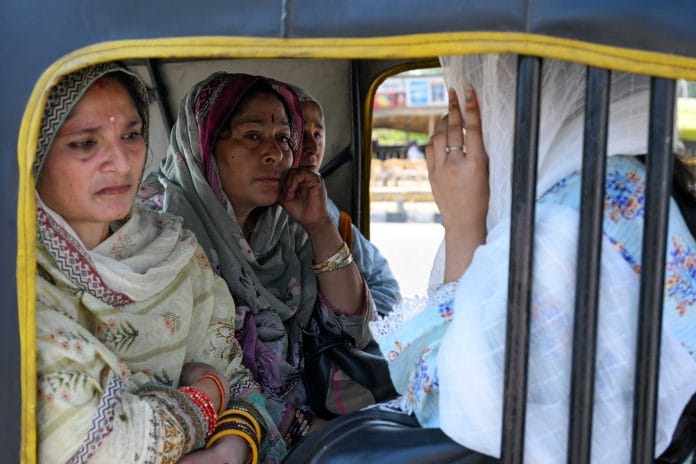



Sorry state but it’s about time for the families to decide to settle in one county. The situation is grave and it is not going to change in the near future. The sad truth is chose one country rather than having ❤️ breaking life.